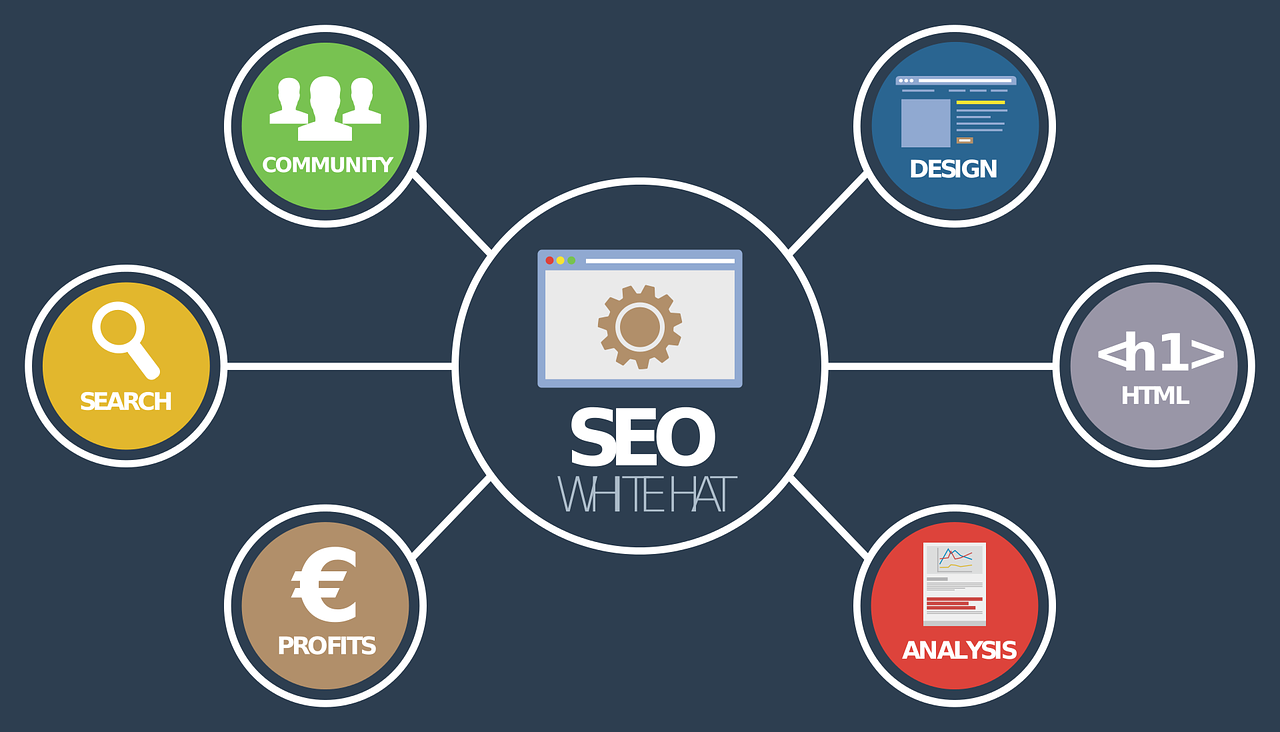Search engine optimisation has changed a lot in the past few years. What was once a simple checklist of keywords and backlinks is now a strategic plan. From your website built to your content and brand, it all plays a part.
Suppose you’re a founder, marketing manager, or part of a growing SME in the UK. In that case, you’re probably asking yourself the same question many others do: Do we tackle SEO ourselves or bring in an expert agency?
Both paths can work, but they suit different situations.
Here, we explain what kind of work SEO companies carry out, when it makes sense to keep things in-house, and when hiring external help can deliver a real return.
What an SEO company actually does
A good SEO agency isn’t just “adding some keywords”. They’re acting as a strategic partner to help your business show up in the right searches at the right time.
This is what this can involve:
Strategy: Setting the direction
Before any work happens, a solid strategy is built, which usually means:
- Audit of the site: Uncover any technical issues, weak spots and opportunities to take.
- Competitor and keyword research: Identify where the best search opportunities lie and how your competitors are performing.
- Forecasting: Estimating potential traffic, leads and ROI so you can make decisions from data.
Execution: Turning strategy into results
Once you’ve got a list of the work that needs to be done, the SEO team can get to work. This can include:
- Technical SEO fixes to make sure the site is crawlable, fast, and structured properly.
- Content creation and optimisation so pages rank for the terms that matter.
- Link building to gain authority.
- Local SEO if required, for searchers in your area.
Measurements: Showing what is working
SEO doesn’t stop at just doing the work and hoping it’s having an effect. Agencies will track performance carefully.
- Dashboard and analytics to make data visible and understandable.
- Regular reporting, typically monthly or quarterly.
- KPIs such as rankings, organic traffic, leads, and revenue. This shows whether your investment is paying off.
When you can (and should) do SEO yourself
Not every business will need to hire an agency on day one. Here are some things to think about:
Ideal DIY scenarios
- Low competition niches where ranking doesn’t need lots of content or a strong link-building profile.
- Brochure-style websites with a few key services or product pages.
- New businesses that are still testing their messaging and market fit.
What to do yourself
If you’re going it alone, don’t get fancy. Focus on the essentials:
- On-page SEO basics: Titles, meta descriptions, headers and internal links.
- Page speed and mobile optimisation: Create a quick-loading site that works on all devices.
- Content planning: Create useful, search-led blog posts and landing pages.
- GBP setup: Have your Google Business Profile page established for local exposure.
- Tracking essentials: Have analytics and search console set up so that you can monitor what is performing.
Be realistic about time
DIY SEO, in fact, all SEO, takes time and commitment. Even a small site can need a few hours a week to keep content fresh, fix issues, and track performance. It’s great for getting started, but it has limits once the competition heats up.
When hiring makes sense
There’s a point when DIY SEO will only take you so far. It might be time to hire a seasoned agency that can help you advance if your growth stops, complexity rises, or rivals begin to overtake you.
Where an agency/expert can help
- When you have highly competitive keywords to target
- Complex websites like e-commerce or multi-location sites
- Site migrations or redesigns
- Stalled growth even with consistent effort
- Limited internal resources, if you have no dedicated SEO person or time to manage it properly.
Signs you could need some SEO help
- Impressions rising but clicks staying flat: This means your pages are being seen, but you’re not winning the click.
- High CPCs in paid search: SEO can reduce reliance on ads and lower acquisition costs.
- Poor technical health: Issues that stop search engines from indexing or ranking your pages properly.
UK SEO pricing and engagement models
Cost is one of the main deterrents to working with an SEO company. It’s not always clear why prices can differ so much. But you can set reasonable expectations if you understand the different ways you can work for them.
Typical UK pricing
While rates vary depending on the agency’s size, experience, and the competitiveness of your industry, here are some ballpark monthly figures:
- Starter packages: £500-£1,500 a month
- SME Growth packages: £1,500 – £5,000 a month
- E-commerce or enterprise campaigns: £5,000+ a month.
Engagement models
There are a number of ways you might work with agencies, and not all agencies might offer these structures. But it’s worth knowing the different types, so you can decide which you’d like to go for.
- Retainer: The most common. A set monthly fee for ongoing strategy, implementation, and reporting. This is the best option for long-term growth.
- Project-based: If you’ve got a site migration or audit, then you might employ someone for a fixed timeline to get the work done. This is best for those with specific goals.
- Day rate or hourly: Useful for ad-hoc consultancy, training or technical support.
How is SEO work priced?
Unfortunately, it’s not a one-price-fits-all box. There are different things that will affect the price, and you’ll find that agency to agency, person to person, cost will vary. These are some things that will affect price:
- Scope of work: The number of pages, target keywords, and depth of strategy.
- Content production: How much content is created and the quality of the content.
- Links: How quick backlinks are created and whether there is a specific budget to be paid for it.
How to pick the right SEO partner (red flags and green flags)
Green flags: Signs to work with an SEO company
Not all SEO agencies are created equal. Knowing what to be aware of can be a game-changer:
Green flags: Signs to do business with an SEO agency
- Transparency: They explain what’s being done and when.
- Personalised strategies: The work is conducted as per your unique needs.
- Significant KPIs: Valid metrics like traffic, conversions or revenue.
- Good copy: Content that’s in the voice of your business.
- Link building: No suspicious networks with useless links.
- Access to data: Ability to view the numbers for themselves.
Warning signs: Red flags to steer clear of an SEO agency
- Guaranteed number one rankings: No one can truly guarantee this, so be wary if they say it to you.
- Private blog networks: Risky link schemes can lead to penalties.
- Vague information: No clarity on what you’re paying for.
- Vague reports: Monthly or quarterly reports should show you work being done and the effects it’s having, if there’s nothing to show, what are you paying for?
Alternatives to an SEO company
Hiring an SEO company isn’t the only route for you, here are some of the other options to think about:
Solo consultancy
An experienced SEO consultant can give you a roadmap and direction, and they can either career out the work or your internal team completes what’s set out.
In-house hire
Bringing an SEO in-house can work well once it becomes a core growth driver for your business.
Hybrid model
You might consider a combination of SEO methods, such as combining a consultant with freelance or internal content and dev support. The downside to this is that there are many moving parts you’ll have to coordinate with.
Why work with Marty Rogers?
When you’re choosing an SEO partner, you’re not just buying a service, you want to be able to trust someone to help with the growth of your business. That’s why I focus on a transparent, strategy-first approach. With more than 20 years of experience I have the knowledge to help deliver on the targets you want to achieve. If you’re ready to get started, then get in touch today. We’ll find out if working together is going to be the right fit for you.
FAQs
How long until I see results?
Most sites will see meaningful movement in three to six months, with the stronger results between months six and 12. Timelines will depend on competition, your starting point, and how quickly changes get made.
Do I need more content or links?
Both content and links matter to SEO, but priorities can be different for every site.
- If you lack pages that match search intent, such as no service pages or thin product descriptions, content will come first.
- If your content is solid but you’re stuck on page 2, high-quality links and digital PR may move the needle.
- In practice, the best results come from pairing intent-led content with a steady flow of relevant and authoritative links.
Can PPC replace SEO?
PPC can bring in traffic immediately and is great for testing messages, but it stops the moment you stop paying. SEO takes longer to ramp, yet it compounds. Pages you build today can help drive free traffic for years. A lot of businesses will run both PPC and SEO, the former to capture demand now and the latter to reduce long-term acquisition costs and win broader visibility.
Is local SEO different?
Yes. Local SEO focuses on proximity and relevance in Google’s local pack. For service areas or multi-location businesses, clear service-area content is incredibly important.
What happens if we stop SEO?
Nothing will happen overnight, but typically you’ll see a decline in performance over time. Competitors will keep publishing and earning links, algorithms will change, and technical issues will creep in. Over a few months, you might see your rankings soften, followed by lower clicks and enquiries.









